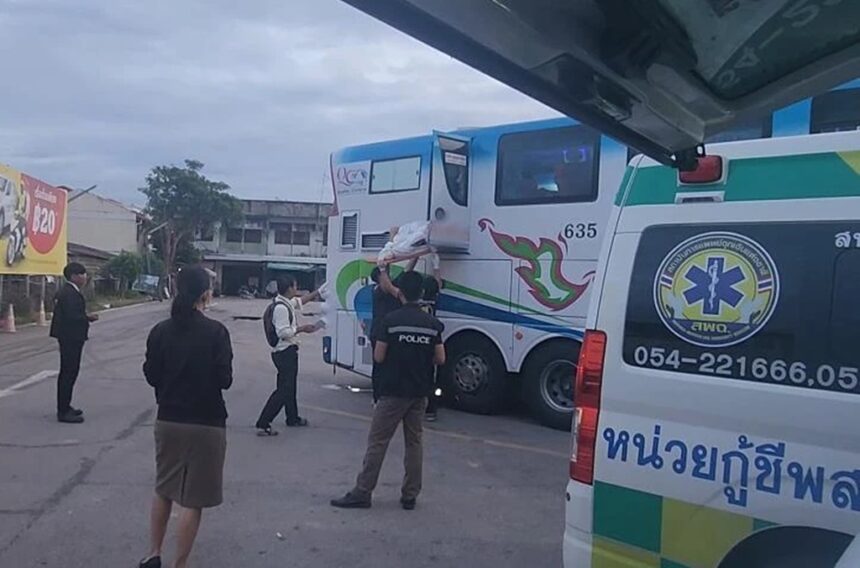LAMPANG – Passengers on a night coach from Nakhon Ratchasima to Chiang Mai were left shaken after discovering a man had died during the journey. The bus arrived at Lampang Bus Terminal in the early morning, where staff found a 38-year-old man unresponsive in his seat.
He had boarded the bus at the starting point in Nakhon Ratchasima and sat alone on the upper deck, left side, towards the back.
When the coach pulled in at the Lampang Bus Terminal and the staff called for passengers to disembark, it became clear something was wrong. Emergency services and forensic doctors arrived to check the scene.
They confirmed the man had died during the 15-hour trip to Lampang. There were no signs of violence, but they noticed bruising and some bleeding on his left leg. Doctors suspect an underlying health issue, possibly diabetes, but have sent the body for further tests at the hospital to confirm the cause of death.
Passengers sitting near the man were disturbed to learn they had spent hours on the bus with someone who had passed away, unaware of what had happened.
Thai superstitions surrounding the dead are deeply rooted in Buddhist beliefs, animism, and cultural traditions. They reflect respect for the deceased, fear of spirits, and efforts to ensure peace for both the living and the dead.
After someone dies, their name is often avoided, especially at night, to prevent summoning their spirit. Nicknames or indirect references are used instead.
Spirits of those who died violently or unexpectedly (phi tai hong) are feared most. These restless ghosts are believed to haunt places or seek revenge. Amulets, tattoos, or rituals are used for protection.
Pregnant women and children are often discouraged from attending funerals or touching the body, as it’s believed they are vulnerable to spiritual influence or bad luck. Many believe the spirit lingers for seven days after death.
Monks chant daily to guide the spirit to the afterlife, and families avoid loud activities to not disturb it














